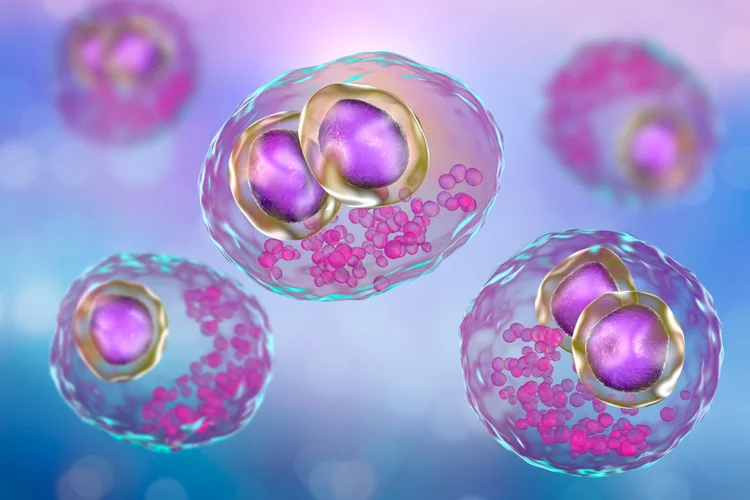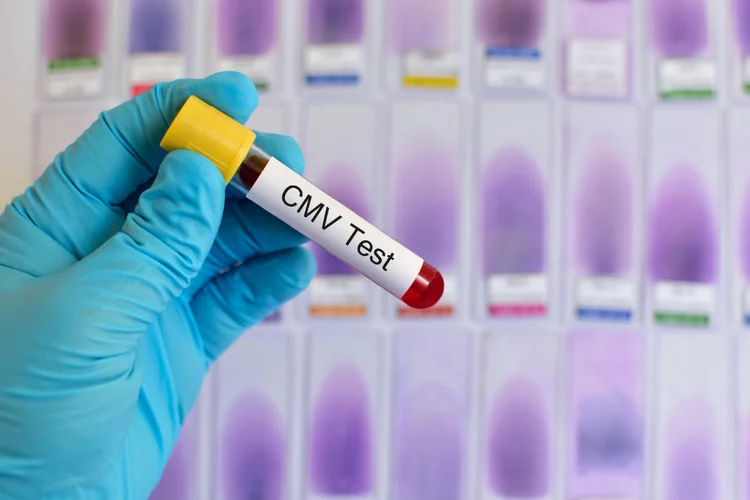Cytomegalovirus (CMV): Symptoms, Complications & Diagnosis
Last updated: Nov 18, 2025
| Test Options |
|
| Treatment | Oral antibiotics |
| Price |
|
| Appointment Options |
Same-day appointment (subject to availability). Book via WhatsApp: 8877 0326 or email: hi@atamed.sg |
| Clinic Locations |
Orchard: 1 Orchard Blvd
#05-09 Camden Medical Centre, S248649 Tanjong Pagar: 72 Anson Rd #01-02 Anson House, S079911 |
What Is Cytomegalovirus (CMV)?
Cytomegalovirus (CMV) is a common virus from the herpesvirus family that can stay
inactive in the body for life after initial infection.
Most healthy individuals infected with CMV have no symptoms or only mild, flu-like illness.
However, the virus can lead to serious complications in people with weakened immune systems,
pregnant women, and newborns.

How Is Cytomegalovirus (CMV) Transmitted?
Cytomegalovirus (CMV) spreads through direct contact with bodily fluids such as saliva,
urine, blood, semen, vaginal fluids, and breast milk. It is not airborne and usually
requires close or repeated exposure for transmission.
Common modes of transmission include:
- Kissing or sharing utensils with an infected person
- From mother to baby during pregnancy, delivery, or breastfeeding
- Sexual contact
- Contact with saliva or urine from young children
- Blood transfusions or organ transplants
While CMV can be passed through sexual activity, it is not classified as a sexually transmitted infection (STI).
Cytomegalovirus (CMV) Symptoms
In healthy individuals, CMV usually causes no symptoms or appears as a mild, flu-like
illness, but symptoms can vary depending on a person’s age and immune function.
Common signs may include:
- Fever
- Fatigue
- Sore throat
- Swollen glands
- Muscle aches

Possible Complications of Cytomegalovirus (CMV)
CMV can cause significant complications, particularly in individuals with weakened immunity and in
newborns with congenital infection.
In people with weakened immune systems, possible complications include:
- Pneumonia
- Hepatitis (inflammation of the liver)
- Retinitis, which may lead to vision impairment or blindness
- Gastrointestinal inflammation, such as ulcers or colitis
- Neurological issues, including seizures or cognitive impairment
- Multi-organ damage, affecting the lungs, liver, brain, or gastrointestinal tract
In babies with congenital CMV, complications may include:
- Hearing loss
- Developmental delays or learning difficulties
- Vision problems
- Seizures
- Microcephaly (abnormally small head size)
- Growth problems or failure to thrive
Identifying and managing CMV-related complications early is important to minimise long-term health impacts, particularly in vulnerable groups.
How Is Cytomegalovirus Diagnosed?
CMV is diagnosed through laboratory testing of bodily fluids or tissues, depending on the
clinical context.
Common diagnostic methods include:
- PCR testing of blood, urine, or saliva to detect CMV DNA, especially useful in newborns and immunocompromised individuals.
- Serological tests on blood samples to identify CMV antibodies (IgM and IgG), which may indicate current or past infection.
- Tissue biopsy when organ-specific CMV disease is suspected, particularly in cases involving the lungs, liver, or gastrointestinal tract.

Routine screening for CMV is not typically recommended for healthy individuals but may be considered in certain cases, such as during pregnancy, pre-transplant evaluations, or in immunocompromised patients.
How Is Cytomegalovirus Managed or Treated?
There is no cure for CMV, but most healthy individuals do not require treatment. Management depends on the severity and the individual’s immune status.
- No treatment is typically needed for mild or asymptomatic cases.
- Antiviral medications, such as ganciclovir, valganciclovir, foscarnet, or cidofovir, may be prescribed for severe cases or high-risk groups.
- Supportive care, including hydration and fever management, may be used for symptomatic relief.
Treatment decisions are usually guided by specialist care, particularly for transplant recipients or immunocompromised patients.
Cytomegalovirus (CMV) Test Cost
At ATA Medical, testing for CMV is available as stand alone blood tests or as part of our genital ulcer testing packages:
| Test / Treatment | Test Type | Price* |
|---|---|---|
| Consultation | From $49.05 | |
| Cytomegalovirus IgM Antibody Test | Blood | $80.66 |
| Cytomegalovirus IgG Antibody Test | Blood | $80.66 |
|
Genital Ulcer PCR Testing (7 tests) Herpes Simplex Virus 1 and 2, Haemophilus Ducreyi (Chancroid), Cytomegalovirus, Lymphogranuloma, Venereum, Treponema Pallidum (Syphilis), Varicella Zoster Virus |
Swab | $318 |
|
Enhanced Genital Ulcer Testing (18 tests) HIV, Syphilis (swab + blood test), Hepatitis B, Hepatitis C, Chlamydia, Gonorrhoea, Mycoplasma genitalium, Mycoplasma hominis, Trichomonas, Ureaplasma parvum, Ureaplasma urealyticum, Herpes Simplex Virus 1 and 2, Haemophilus Ducreyi (Chancroid), Cytomegalovirus, Lymphogranuloma, Venereum, Treponema Pallidum (Syphilis), Varicella Zoster Virus |
Blood + Swab | $538 |
| Oral Antibiotics | From $1.09 per tab | |
^Prices last updated on Jan 28, 2026. While every effort is made to keep pricing information up to date, please contact our team to confirm the latest rates.
We also provide discreet, confidential testing and treatment
for STIs, available as standalone tests or part of comprehensive screening packages. Both
male and female doctors are available upon request to support your comfort and preferences.
For details on available tests, treatment options, or to book an appointment, please contact us directly.
How Do I Book a Cytomegalovirus (CMV) Testing Appointment?
ATA Medical @ Orchard
Nearest MRT: Orchard Boulevard Station (TE13)
Contact Number: 6223 0682
Email: camden@atamed.sg
Opening Hours:
Mon - Fri: 8:30 AM to 12:30 PM, 1:30 PM to 5:30 PM
Sat: 8:30 AM to 12:30 PM
Sun & PH: Closed
ATA Medical @ Tanjong Pagar
Nearest MRT: Tanjong Pagar Station (EW15)
Contact Number: 6223 0682
Email: hi@atamed.sg
Opening Hours:
Mon - Fri: 8:30 AM to 12:30 PM, 1:30 PM to 5:30 PM
Sat: 8:30 AM to 12:30 PM
Sun & PH: Closed


